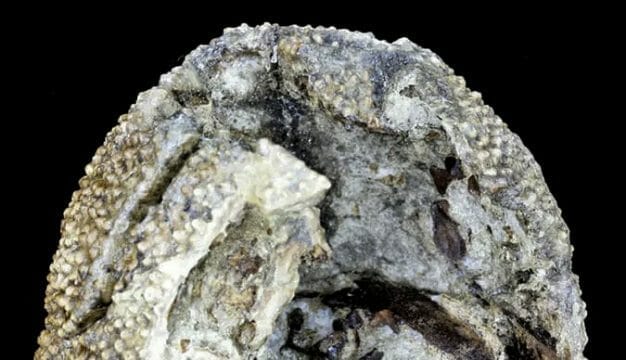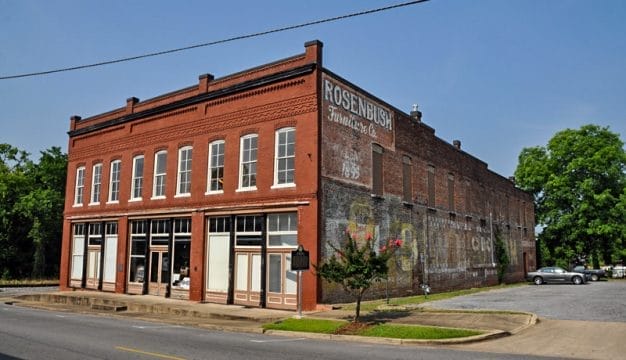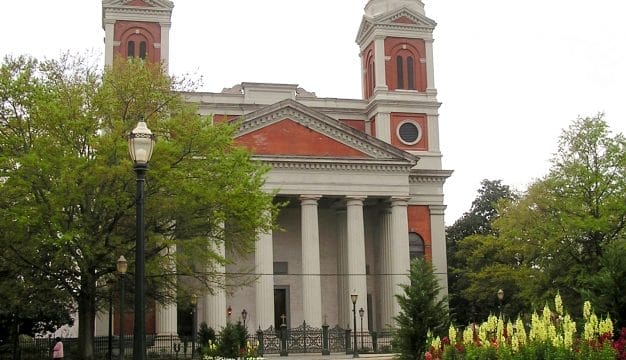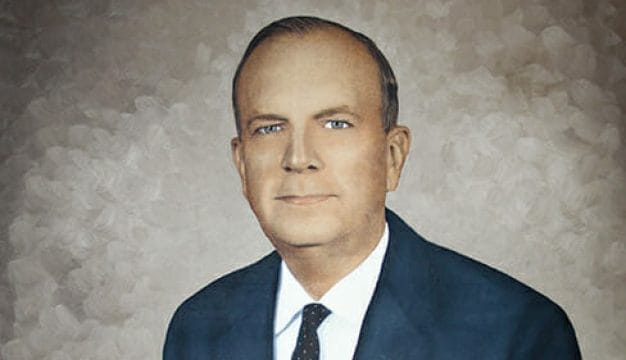Minnie Bruce Pratt
Minnie Bruce Pratt (1946- ), one of Alabama‘s best-known contemporary poets, is also widely recognized as an essayist, political activist, and university educator. Her work is both autobiographical, exploring her origins in the Black Belt region and her resistance to traditional roles for southern women, and political, dealing with gender and sexual identity, race discrimination, and capitalism.
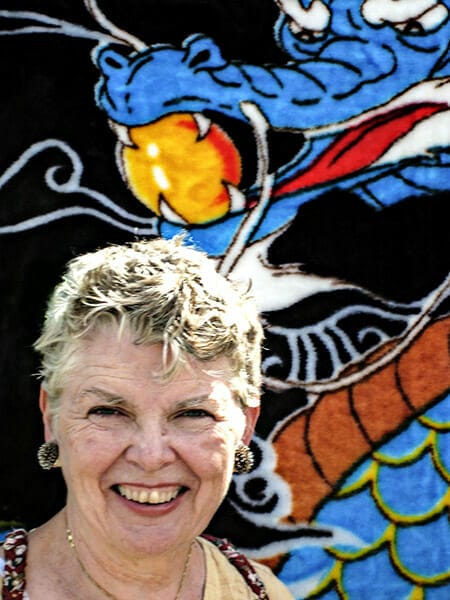 Minnie Bruce Pratt
Pratt was born on September 12, 1946, in Selma, Dallas County, to Virginia Brown Pratt, a social worker, and William Luther Pratt Jr., a clerk. She grew up in Centreville, Bibb County, where she attended Bibb County High School when it was still segregated. Pratt graduated from the University of Alabama with a bachelor of arts degree in 1968. During college, Pratt married fellow poet Marvin E. Weaver II and later lived with him and their two sons in Fayetteville, North Carolina. Pratt had stopped writing after her marriage, but she returned to poetry in 1975 after she came out as a lesbian. When Pratt and her husband divorced later that year, she lost custody of her children based on the state’s “crime against nature” statute criminalizing homosexual activity, an experience that she later explored in-depth in her poetry. From 1975 to 1980, she taught as an adjunct at Fayetteville State University, a historically black school.
Minnie Bruce Pratt
Pratt was born on September 12, 1946, in Selma, Dallas County, to Virginia Brown Pratt, a social worker, and William Luther Pratt Jr., a clerk. She grew up in Centreville, Bibb County, where she attended Bibb County High School when it was still segregated. Pratt graduated from the University of Alabama with a bachelor of arts degree in 1968. During college, Pratt married fellow poet Marvin E. Weaver II and later lived with him and their two sons in Fayetteville, North Carolina. Pratt had stopped writing after her marriage, but she returned to poetry in 1975 after she came out as a lesbian. When Pratt and her husband divorced later that year, she lost custody of her children based on the state’s “crime against nature” statute criminalizing homosexual activity, an experience that she later explored in-depth in her poetry. From 1975 to 1980, she taught as an adjunct at Fayetteville State University, a historically black school.
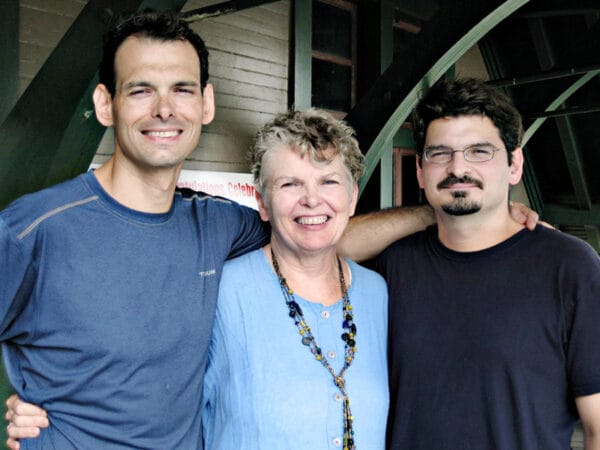 Minnie Bruce Pratt and Sons
In 1978, Pratt joined Feminary, a southern feminist writing collective that produced a journal of the same name, and earned a Ph.D. in English literature from the University of North Carolina the following year. She taught as an assistant professor at the historically black Shaw University in Raleigh, North Carolina, from 1980 to 1982 and left Feminary in 1983. She returned to teaching in 1984 and began a series of appointments at various universities, among them George Washington University, Hamilton College, and the University of Maryland, College Park. From 2005 to 2015, she was Professor of Women’s and Gender Studies and Writing and Rhetoric at Syracuse University, in Syracuse, New York. She developed the university’s first LGBT Study Program She met her spouse, transgender lesbian activist and writer Leslie Feinberg, in Washington, D.C., in 1992, and the couple married in 2011. Feinberg died in 2014.
Minnie Bruce Pratt and Sons
In 1978, Pratt joined Feminary, a southern feminist writing collective that produced a journal of the same name, and earned a Ph.D. in English literature from the University of North Carolina the following year. She taught as an assistant professor at the historically black Shaw University in Raleigh, North Carolina, from 1980 to 1982 and left Feminary in 1983. She returned to teaching in 1984 and began a series of appointments at various universities, among them George Washington University, Hamilton College, and the University of Maryland, College Park. From 2005 to 2015, she was Professor of Women’s and Gender Studies and Writing and Rhetoric at Syracuse University, in Syracuse, New York. She developed the university’s first LGBT Study Program She met her spouse, transgender lesbian activist and writer Leslie Feinberg, in Washington, D.C., in 1992, and the couple married in 2011. Feinberg died in 2014.
Pratt’s painful separation from her young sons is the basis for her most acclaimed volume of poetry, Crime Against Nature, chosen as the Lamont Poetry Selection by the Academy of American Poets in 1989. In these poems, Pratt exposes the ways that gender inequality and racial injustice, rather than her sexuality, constitute actual crimes against nature. Her poems about her struggle to preserve her relationship with her children, interrupted by abrupt shifts and drop-offs that indicate the intense pain of this experience, fit into a larger narrative framework that also chronicles her connections to her own mother, the black woman who cared for her as a child, and her lover.
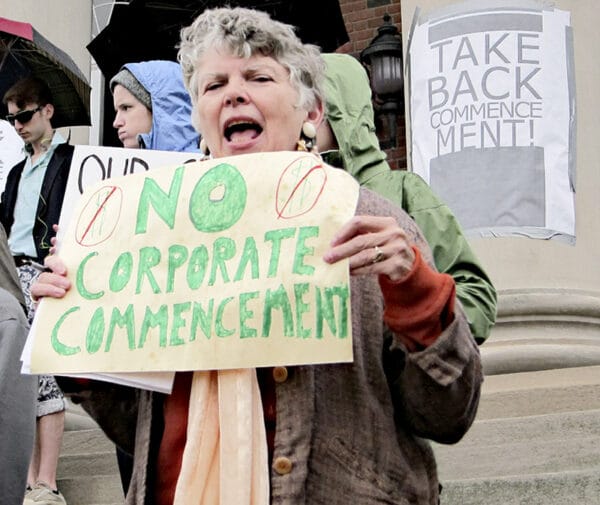 Minnie Bruce Pratt at Syracuse University Protest
The poems in Pratt’s collection We Say We Love Each Other, published in 1985, explore the relationships between white, African American, and Indian women in the history of south Alabama. This concern with history also runs throughout her essays; she charts, for instance, the traditional connections between racism and attitudes toward southern womanhood in “Identity: Skin Blood Heart,” which appeared in Yours in Struggle: Three Feminist Perspectives on Racism and Anti-Semitism in 1984. This essay was collected with others in Rebellion: Essays 1980-1991 and has become a highly regarded work in the feminist canon. In 1991, Pratt received a creative writing grant from the National Endowment for the Arts, which some members of Congress questioned because they considered her writing too controversial. In response, together with the poets Audre Lorde and Chrystos, she received the Lillian Hellman–Dashiell Hammett Award, given by the Fund for Free Expression to writers who have faced political persecution.
Minnie Bruce Pratt at Syracuse University Protest
The poems in Pratt’s collection We Say We Love Each Other, published in 1985, explore the relationships between white, African American, and Indian women in the history of south Alabama. This concern with history also runs throughout her essays; she charts, for instance, the traditional connections between racism and attitudes toward southern womanhood in “Identity: Skin Blood Heart,” which appeared in Yours in Struggle: Three Feminist Perspectives on Racism and Anti-Semitism in 1984. This essay was collected with others in Rebellion: Essays 1980-1991 and has become a highly regarded work in the feminist canon. In 1991, Pratt received a creative writing grant from the National Endowment for the Arts, which some members of Congress questioned because they considered her writing too controversial. In response, together with the poets Audre Lorde and Chrystos, she received the Lillian Hellman–Dashiell Hammett Award, given by the Fund for Free Expression to writers who have faced political persecution.
In the volume of prose vignettes S/he, Pratt explores the boundaries between sex, gender, and desire; the book was a 1996 finalist in the American Library Association’s Gay and Lesbian Book Awards. She focused on race relations in her 1999 poetry collection Walking Back Up Depot Street, which follows a white woman’s journey from Alabama and the racially segregated South to the postindustrial North. In 2003, The Dirt She Ate: Selected and New Poems won the Lambda Literary Award for Poetry and was hailed by reviewers for Pratt’s courage in both older and more recent poems. In Inside the Money Machine (2011), Pratt chronicles the despair and hopes of common workers struggling in an unjust economic system. The collection won Publsihing Triangle’s Audre Lord Award in 2012.
Throughout her career, Pratt has engaged in political activism on the issues she writes about: women’s, gender, and lesbian, gay, bisexual, and transgender issues and anti-racist, anti-imperialist, and anti-capitalist work. She is active in the Women’s Fightback Network of the International Action Center, which opposes sexism, racism, homophobia, and economic discrimination in the United States and is a member of the National Writers Union Local 1981 of the the International Union, United Automobile, Aerospace and Agricultural Implement Workers of America (UAW).
Works by Minnie Bruce Pratt
The Sound of One Fork (1981)
Yours In Struggle: Three Feminist Perspectives on Anti-Semitism and Racism (co-authored with Elly Bulkin and Barbara Smith, 1984)
We Say We Love Each Other (1985)
Crime Against Nature (1990)
Rebellion: Essays 1980-1991 (1991)
S/He (1995)
Walking Back Up Depot Street (1999)
The Dirt She Ate: Selected and New Poems (2003)
Inside the Money Machine (2011)
Additional Resources
Aldrich, Marcia, and Leigh Gilmore. “Writing Home: ‘Home’ and Lesbian Representation in Minnie Bruce Pratt.” Genre 25:1 (1992): 25-46.
McPherson, Tara. “Feeling Southern: Home, Guilt, and the Transformation of White Identity” in Reconstructing Dixie: Race, Gender and Nostalgia. Durham, N.C.: Duke University Press, 2003.
Powell, Tamara M. “Look What Happened Here: North Carolina’s Feminary Collective.” North Carolina Literary Review 9 (2000): 82-102.
Rich, Adrienne. “The Transgressor Mother.” What Is Found There: Notebooks on Poetry and Politics. New York: W. W. Norton, 1993.
Taylor, Helen. “Women and Dixie: The Feminization of Southern Women’s History and Culture.” American Literary History 18 (2006): 847-60.
Whitehead, Kim. “Motherhood, Eroticism, and Community in the Poetry of Minnie Bruce Pratt.” The Feminist Poetry Movement. Jackson: University Press of Mississippi, 1996. 188-211.
